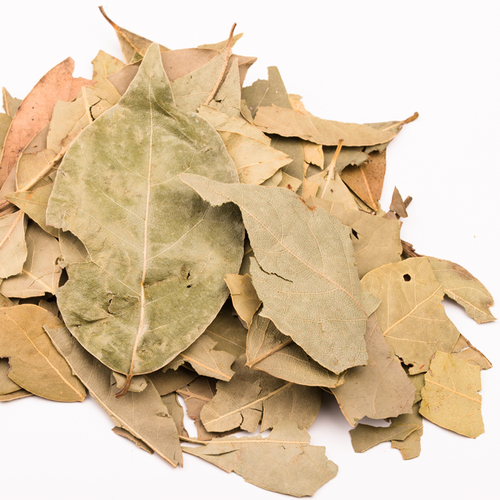
Myrcia
Scientific names: Myrcia multiflora, Myrcia salicifolia, Myrcia uniflora
Family: Myrtaceae
Alternate names: Cambui, Pedra Hume, Pedra Hume Caa
Actions: Hypoglycemic, Hypothyroid
Background
Myrcia is a medium-sized shrub that grows in parts of central and southeastern Brazil. Some Myrcia species also grow in other South American countries, including Bolivia, Peru, and Paraguay.
Myrcia is used for diabetes, diarrhea, hemorrhage, high blood pressure, and other conditions, but there is no good scientific evidence to support its use.
Myrcia is used for diabetes, diarrhea, hemorrhage, high blood pressure, and other conditions, but there is no good scientific evidence to support its use.
Safety Safety definitions
When taken by mouth: There isn't enough reliable information to know if Myrcia is safe or what the side effects might be.
Underactive thyroid (hypothyroidism): Myrcia might decrease the production of thyroid hormone. This might worsen symptoms in people who already have low thyroid hormone levels.
Special Precautions & Warnings:
Pregnancy and breast-feeding: There isn't enough reliable information to know if Myrcia is safe to use when pregnant or breast-feeding. Stay on the safe side and avoid use.Underactive thyroid (hypothyroidism): Myrcia might decrease the production of thyroid hormone. This might worsen symptoms in people who already have low thyroid hormone levels.
Effectiveness
NatMed Pro rates effectiveness based on scientific evidence according to the following scale: Effective, Likely Effective, Possibly Effective, Possibly Ineffective, Likely Ineffective, Ineffective, and Insufficient Evidence to Rate.
Insufficient evidence Effectiveness definitions
- Diabetes. Early research shows that drinking an herbal tea containing Myrcia uniflora does not improve blood sugar or insulin levels in people with or without diabetes.
- Diarrhea.
- Bloody diarrhea.
- Inflamed intestines.
- Bleeding.
- High blood pressure.
- Mouth ulcers.
- Other conditions.
Dosing & administration
The appropriate dose of Myrcia depends on several factors such as the user's age, health, and several other conditions. At this time there is not enough scientific information to determine an appropriate range of doses for Myrcia. Keep in mind that natural products are not always necessarily safe and dosages can be important. Be sure to follow relevant directions on product labels and consult your pharmacist or physician or other healthcare professional before using.
Interactions with pharmaceuticals
Levothyroxine (Synthroid, others)
Interaction Rating=Moderate Be cautious with this combination.
Myrcia might reduce how much thyroid hormone the body produces. Levothyroxine is used to increase thyroid hormone levels in people whose levels are too low. In theory, taking Myrcia with levothyroxine might reduce how well levothyroxine works.
Interactions with herbs & supplements
There are no known interactions with herbs and supplements.
Interactions with foods
There are no known interactions with foods.
Action
Myrcia might reduce how much sugar is absorbed by the stomach. This might help lower post-meal blood sugar levels in people with diabetes.
vital.ly has licensed monographs from TRC Healthcare.
This monograph was last reviewed on 29/12/2022 18:09:49 and last updated on 05/11/2020 21:44:58. Monographs are reviewed and/or updated multiple times per month and at least once per year.
Natural Medicines disclaims any responsibility related to medical consequences of using any medical product. Effort is made to ensure that the information contained in this monograph is accurate at the time it was published. Consumers and medical professionals who consult this monograph are cautioned that any medical or product related decision is the sole responsibility of the consumer and/or the health care professional. A legal License Agreement sets limitations on downloading, storing, or printing content from this Database. No reproduction of this monograph or any content from this Database is permitted without written permission from the publisher. It is unlawful to download, store, or distribute content from this site.




